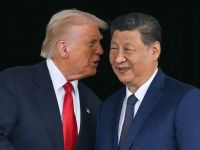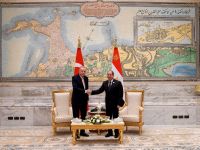Over the last decade China has been negotiating with Russia’s Gazprom a 30-year supply deal which could result in the delivery of 38 billion cubic metres, or, bcm, per year from 2018 onwards. That amount is equivalent to 11 per cent of China’s yearly gas demand or about 24 per cent of Russian exports to Europe. Over the duration of the contract, the amount of gas supplied annually by Russia would reach eventually 60bcm per year. Discussions have stretched over a long period but most of the details had been agreed upon some time ago. The only missing element in this negotiation at this stage is the price.
The infrastructure to transport natural gas is expensive. The construction of the pipeline linking Siberia and the Chinese border is estimated to cost $22 billion, increasing to $90 billion if the development of the gas fields is included. The expanded East Siberia-Pacific Ocean pipeline would be able to pump into China 80 million tonnes of gas, the equivalent to 1.6 million barrels per day by 2020. Even though the extraction cost for Russia is low, below $2 per million British thermal units, the price that the country needs to charge to make the investment profitable is around $13.5. However, China has been importing gas from Turkmenistan for less than $10 and is using that price as its best offer, taking advantage of Russia’s rising need to diversify away from Europe. Russia, with no alternative clients for its natural gas, is considering accepting the losses. This negotiation will set the tone for the Chinese-Russian relationship in the next few years.
China and Russia energy interests are aligned in the long term. China is trying to reduce its reliance in coal and oil by increasing the use of natural gas, nuclear and renewable energy. The United States’ Energy Information Administration expects the share of natural gas in the Chinese energy mix to increase from 4.5 per cent to 6.3 per cent by 2030. The national five-year plan sets as a goal to double gas use in absolute terms. According to Reuters, this year natural-gas consumption is expected to rise 11 percent to 186bcm with imports growing 19 per cent, stimulated by the closure of coal-fired power stations to curb pollution.
But Russia also needs desperately to strengthen its relationship with China. Russia and Europe are strongly interdependent but Russia depends more on Europe. One hundred per cent of Russian exports of natural gas go to Europe and Turkey (80 per cent if we include LNG which is exported to Asia). Russia depends on oil and gas sales to finance half of its budget. Fifty per cent of Russian trade has Europe as origin or destination while only 10 per cent of European trade is linked to Russia. Europe has clearly expressed its will to cut ties with Russia; in fact, the process started years ago. In the last decade the share of Russian gas in the total consumption of natural gas in Europe decreased from 40 per cent to 32 per cent even though it still remains the main supplier and it will continue to be so for the next 20 years. Aware of this trend, Russia is seeking to increase the share of exports to Asia, a region that traditionally gets less involved in external political affairs. By 2035, Moscow plans to double the share of oil flows and send a third of its gas exports eastwards, though its plans are constrained by the lack of necessary infrastructure.
The impact in future exports by countries of the GCC is straightforward: GCC countries will enjoy a smaller share in the Chinese future energy mix. The proportion of Chinese energy imports coming from the Gulf is currently expanding, mostly because it is the only region with capacity to provide a steady and growing flow of energy. GCC countries already provide a third of total oil imports and could easily increase this share. Saudi Arabia alone accounts for 20 per cent of total oil imports, and Oman, Kuwait and the UAE are the source of an additional 15 per cent. However the Chinese government considers that such dependence increases its vulnerability to any conflict in the Middle East and is actively engaged in securing additional imports from other regions in the world. The availability of Russian resources represents a strategic opportunity for China.
In this framework, China has got the upper hand. China and Russia energy interests are aligned in the long term, but the deterioration of the relationship between Russia and Europe gives a lot of negotiating power to China to define the future terms of this partnership. The GCC, as the key global provider, will lose from any agreement between China and any other energy provider.
By: Francisco Quintana








